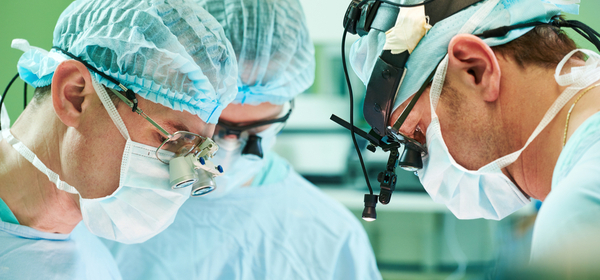Sometimes a general anaesthetic is unavoidable, but when you discover what it does to your brain and body, you may be more likely to go for a local the next time you have a choice.
Research has revealed that older people who have surgery requiring general anaesthetic can take up to six months to get over the anaesthetic alone.
According to a study published on eurekalert.org, 35 per cent of older patients who had a general anaesthetic actually increased their risk of developing dementia by 35 per cent.
This may be because the anaesthesia causes inflammation to neural tissues, antagonising the precursors to Alzheimer’s disease.
However, for the times when you do need a ‘general’, it can pay to know how it works, so you know what to expect and how you’ll recover.
Scarily enough, the exact way anaesthesia works is not entirely clear. The drug may work by altering neuronal membranes possibly by making membrane proteins expand. Feeling assured?
Suffice to say that anaesthetics works on many levels at once, acting on several sites in the nervous system and causing analgesia (the inability to feel pain), amnesia and immobility. The drugs range from alcohol to a complex chemical called sevoflurane, which will act on a number of brain sites, such as:
- the cerebral cortex (acts on memory, attention and perception)
- thalamus (relays information from sensory receptors to various areas of the brain)
- the reticular activating system (regulates sleep)
- the spinal cord (takes signals from the brain to the body)
- neurotransmitters and receptors, including those that control memory and synaptic functions, hormone regulators and some that govern sleep function.
So, what does general anaesthesia do to you?
The first stage of anaesthesia is called the induction phase, when you will feel floaty, tingly and light all over. You will feel no pain just prior to losing consciousness.
During the second stage, your body will go through the ‘excitement phase’ – a very short phase when your body will feel panic because it is instinctively trying to ‘save’ you from reacting to the anaesthesia.
Stage three is called ‘surgical anaesthesia’, which is when you fall asleep, although you’re not simply in a deep sleep or unconscious, you’re closer to a comatose state.
The fourth stage is when your nervous system shuts down, and your brain is effectively in a state of impairment, blocking any pain signals or the ability to respond to anything at all.
During this stage, your brain won’t even be able to communicate with itself, as the drug will calm the flow of chaotic electrical signals to a point where they are so calm that your entire body follows suit.
The anaesthesia will also prevent the flow of neurological and electrical activity through your spine, effectively paralysing you.
Now, all this sounds harrowing but you’ll be monitored very closely by a dedicated member of a surgical team – the anaesthesiologist.
Once you’re out from under an anaesthetic, your brain needs to restart. It’s not as simple as just waking up. Your brain will wake in one area, then another and once enough parts of your brain awaken, it will then try to re-start the connections to get things firing again. During this phase, you may feel a little ‘crazy’.
And when you first ‘wake up’ all of your body parts may not work properly, but with a little time, they should all come back online and, chances are, you won’t remember any part of this phase or any previous stages – or if you do, it will be extremely vague.
For one in every one thousand instances of anaesthesia, a patient may experience ‘Anaesthesia Awareness’ where they may recall aspects of their procedure, including pain and sensations such as fear and discomfort. This happens when drugs are administered incorrectly, but this is so rare that you shouldn’t let it dissuade you from anaesthesia.
As you can see, general anaesthesia comes with its share of risk, both to your body and your brain. But, overall, general anaesthesia is very safe: the risks involved in the surgical procedure are usually much higher. But if you have a choice between a local or general anaesthetic, the local does involve far fewer risks.
Read more at Medical News Today
Do you ever worry about general anaesthetic? Were you aware of the risks?
Related articles:
Make sure you need that surgery
Five unknown painkillers
Risk of death doubles at night

